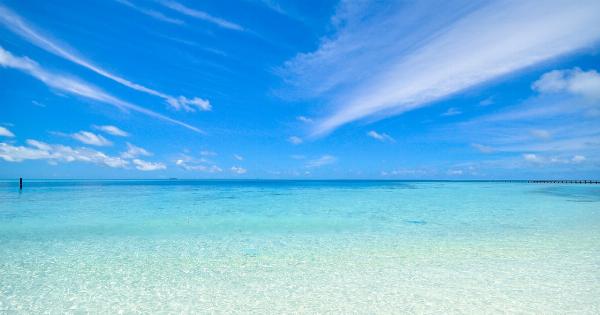Summer is a time for fun in the sun, but it can also bring about some uncomfortable health issues. One common problem that many people experience during the summer months is nosebleeds.
These sudden bleeding episodes can be alarming, but understanding the causes and knowing how to stop them can help you enjoy the summer without interruption. In this article, we will discuss the causes of nosebleeds during the summer, effective home remedies to stop them, and when to seek medical attention.
Causes of Nosebleeds during the Summer
Nosebleeds, also known as epistaxis, occur when the tiny blood vessels in the nose become damaged or irritated. Various factors can contribute to nosebleeds during the summer months:.
Dry Air
One of the main reasons for nosebleeds in the summer is the dry air. During this season, humidity levels drop, and the air becomes dry. Dry air can dry out the nasal membranes, making them more susceptible to cracking and bleeding.
Additionally, spending time in air-conditioned environments can further worsen nasal dryness.
Hay Fever and Allergies
Summer often brings about an array of allergens, such as pollen, which can trigger hay fever and allergic reactions. These allergies cause nasal congestion, sneezing, and itching.
Continuous blowing of the nose can irritate the nasal passages and lead to nosebleeds.
Summer Activities
Engaging in various activities during the summer can also increase the risk of nosebleeds:.
(1) Outdoor Sports: Participating in outdoor sports or recreational activities can sometimes lead to injuries or accidental blows to the nose, resulting in nosebleeds.
(2) Swimming: Prolonged exposure to chlorinated water can irritate the nasal lining and trigger nosebleeds.
(3) Sunburn: Severe sunburn on the face can cause blood vessels in the nose to expand and rupture, leading to nosebleeds.
Effective Home Remedies to Stop Nosebleeds
If you experience a nosebleed, there are several steps you can take to stop it at home:.
Sit up and Lean Forward
When a nosebleed occurs, it is important to keep your head elevated above your heart. Sit upright and lean slightly forward. By doing this, you prevent blood from flowing down the back of your throat, which can cause nausea or coughing.
Leaning forward also helps to reduce blood pressure in the blood vessels of the nose, aiding in clot formation and cessation of bleeding.
Pinch the Nose
Use your thumb and index finger to pinch your nostrils together firmly. Maintain this pressure for approximately ten minutes. Applying pressure to the nose compresses the blood vessels, helping to stop the bleeding.
Avoid releasing the pressure prematurely, as this can disrupt the clotting process.
Apply Cold Compress
Placing a cold compress on the bridge of the nose can constrict blood vessels and slow down blood flow. Wrap some ice cubes in a clean cloth or use a cold gel pack. Apply the compress gently for a few minutes at a time.
Be careful not to apply excessive pressure, as it may worsen the bleeding.
Moisturize the Nasal Passages
Applying a thin layer of petroleum jelly or saline nasal spray inside the nostrils helps to moisturize and lubricate the nasal passages. This helps prevent nasal dryness and reduces the likelihood of nosebleeds.
Avoid Irritating Substances
Avoid exposing your nasal passages to irritants, such as tobacco smoke, strong chemical odors, or allergens that may trigger allergies. Irritation can lead to inflammation and make the nasal lining more prone to nosebleeds.
When to Seek Medical Attention
While most nosebleeds are harmless and can be managed at home, certain situations warrant medical attention:.
(1) If the nosebleed lasts longer than 20 minutes.
(2) If the bleeding is excessive or is accompanied by dizziness, lightheadedness, or fainting.
(3) If the nosebleed follows an injury, such as a fall or a blow to the head.
(4) If you experience frequent nosebleeds despite taking preventive measures.
Remember, your doctor is the best person to advise you on any concerns or questions you may have about nosebleeds.
Conclusion
Nosebleeds can be an inconvenient and uncomfortable occurrence, especially during the summer months.
By understanding the causes and taking appropriate preventive measures, such as moisturizing the nasal passages, avoiding irritants, and protecting against injuries, you can reduce the chances of experiencing nosebleeds. In most cases, home remedies like sitting upright, pinching the nose, and applying a cold compress are effective in stopping nosebleeds.
However, it is crucial to consult a medical professional if nosebleeds persist, come with severe symptoms, or occur frequently. Take care of your nasal health and enjoy a nosebleed-free summer!.






























